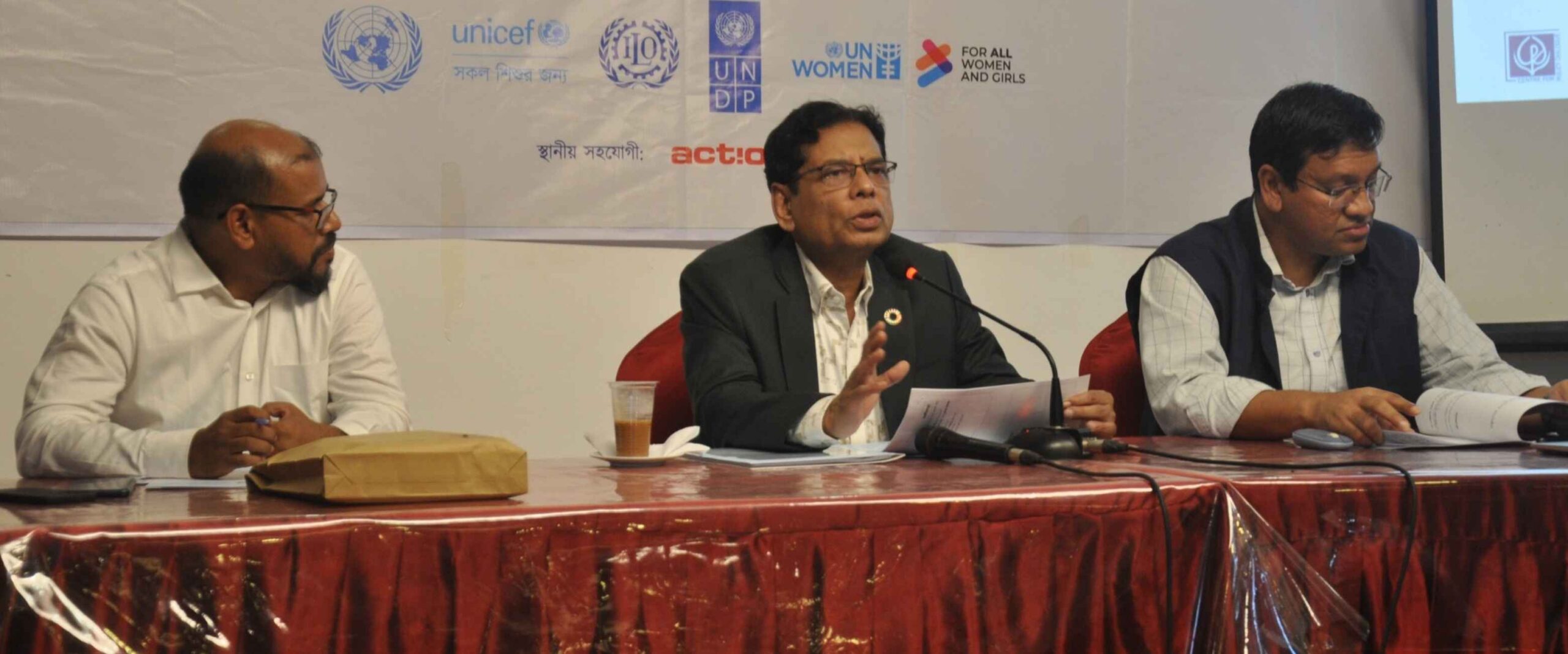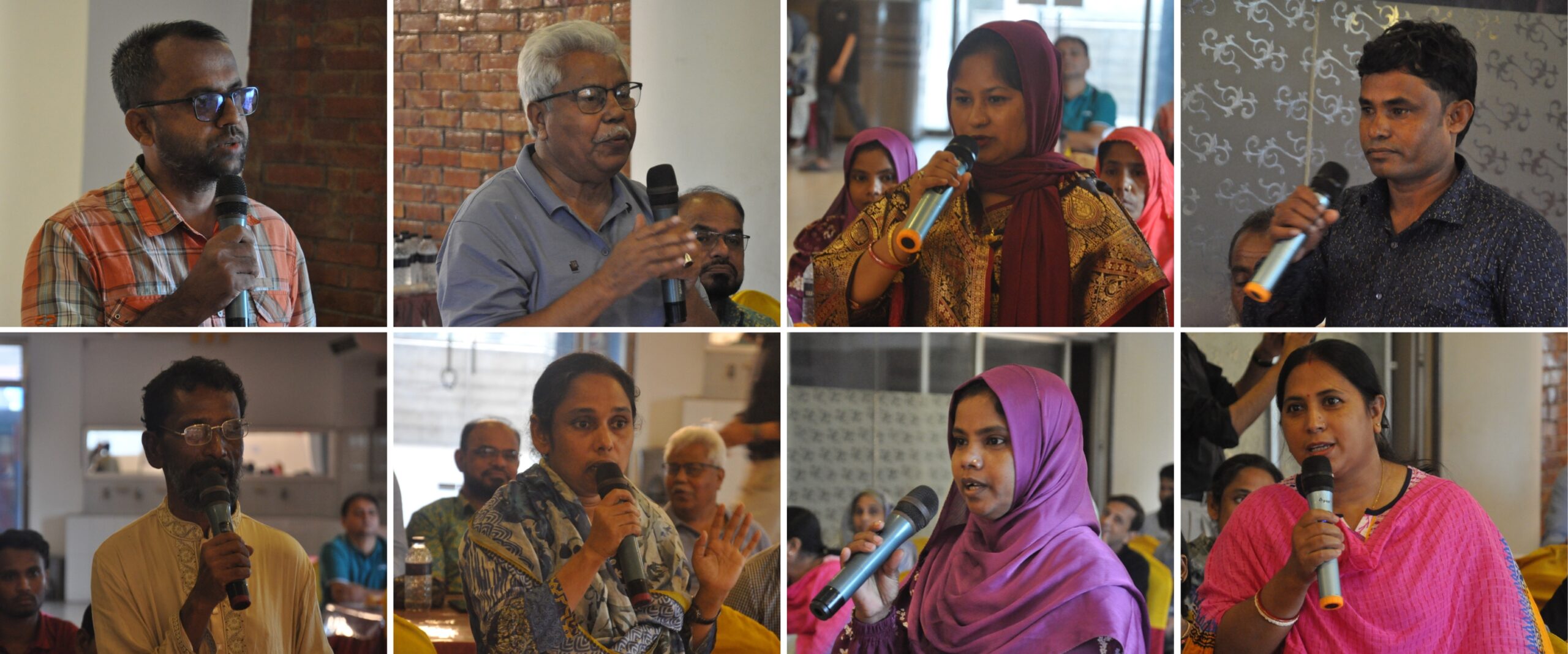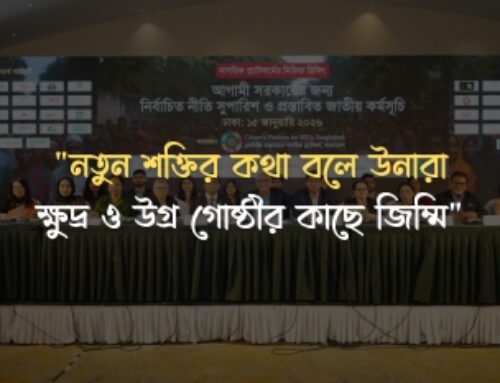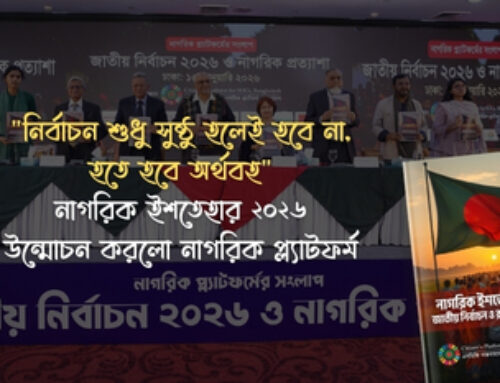
The Centre for Policy Dialogue (CPD) is implementing a research initiative titled “Reaching the Furthest Behind First: A Human Rights-Based Approach to Confront Extreme Poverty in Bangladesh.” The study explores the realities of extremely poor working populations who, despite being employed, remain trapped below the poverty line. It focuses on five marginalised occupational groups for whom reliable data are limited. The research aims to identify the challenges and barriers these groups face through a human rights and capability lens and to enhance their visibility in national policy discourse.
As part of this initiative, a multi-stakeholder consultation was convened on 29 September 2025 in Sunamganj, jointly organised by CPD and the Citizen’s Platform for SDGs, Bangladesh. The consultation examined the socio-economic conditions of low-income earners in the Haor region, a key focus area of the study. The session was chaired by Professor Mustafizur Rahman, Distinguished Fellow, CPD, and Core Group Member, Citizen’s Platform. Mr Towfiqul Islam Khan, Additional Director (Research), CPD, presented the preliminary findings on the challenges faced by low-income populations living in the climate-vulnerable Haor areas. Dr Mohammad Ileas Mia, Deputy Commissioner and District Magistrate of Sunamganj, also attended the discussion.

Participants highlighted the environmental and economic vulnerabilities faced by people living in the Haor areas, particularly those engaged in agriculture and fishing. Concerns were raised regarding inequitable access to natural resources, especially in the leasing of water bodies, a process often dominated by politically connected and influential groups. As a result, many vulnerable families are denied access to resources meant to support their livelihoods.
The worsening effects of climate change were a central point of discussion. Declining fish stocks, changing water patterns, and erratic weather events have undermined traditional income sources and further reduced employment opportunities during key seasons. Participants recommended revisiting current policies to ensure equitable access to water bodies and prevent leaseholders from excluding local fishers. They also emphasised the need to protect fish sanctuaries through proper enforcement of ban periods, accompanied by livelihood support for affected communities to balance conservation and income security.
The lack of adequate public services was identified as another key concern, depriving residents of the Haor region of opportunities for education, healthcare, and alternative employment. Livelihoods are often disrupted during the monsoon season, yet there is little institutional support for skill development or job diversification.
Participants also underscored the absence of maternity benefits and social protection for women workers. Women remain largely excluded from safety nets and government support programmes, while limited access to healthcare and information further affects their well-being and ability to claim entitlements.
Several speakers proposed alternative income-generating opportunities, including handicrafts and traditional artisan work. Many women in Haor areas possess valuable skills, but limited access to markets, insufficient capital, and lack of institutional support hinder progress. Expanding technical and vocational education was recommended to enhance resilience and create new pathways for employment.
The consultation brought together representatives from climate-vulnerable Haor communities, local government officials, community leaders, development practitioners, and civil society representatives. This initiative received technical and financial support from UNICEF, the International Labour Organization (ILO), UNDP Bangladesh, the Office of the UN Resident Coordinator, and UN Women, with local implementation support from ActionAid Bangladesh.





Leave A Comment